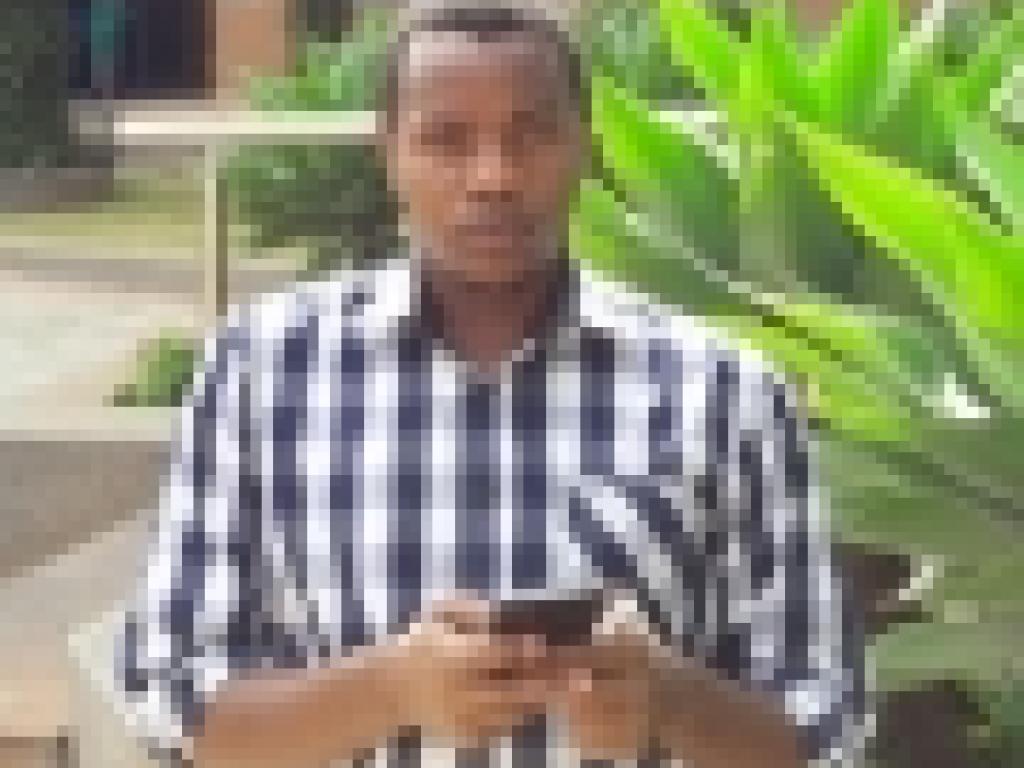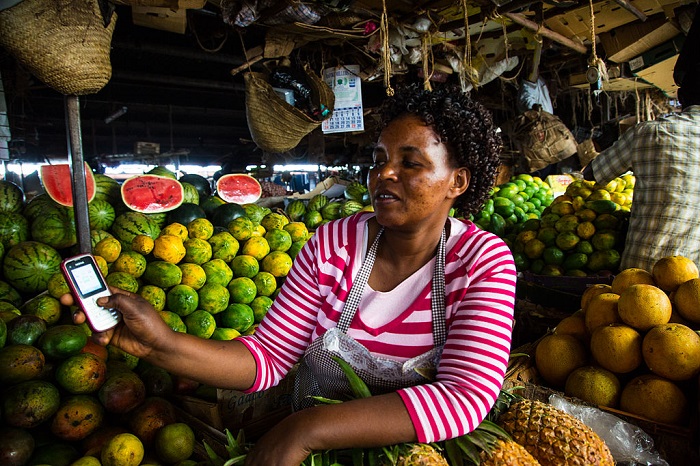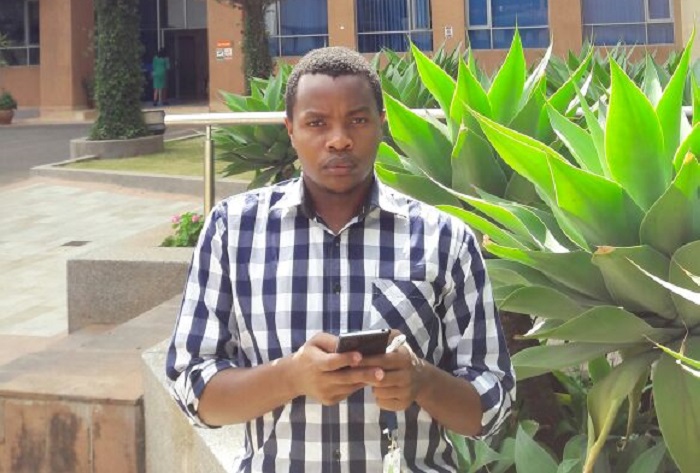Jeremiah Mutungi’s lifelong passion to make mobile work for Africa

I remember, as a child, walking several kilometres out of our village in Kenya, up mountainous terrain with my father as we searched for a spot where the signal was strong enough to support a call. I watched him as he was talking to these people on this gadget that seemed to collapse space and time, and I was awe-struck.”

Jeremiah Mutungi is working on a prototype mobile application that will link small-scale farmers and retailers, and do away with the middlemen.
This is how Jeremiah Mutungi, a MasterCard Foundation Scholar and electrical engineering graduate, remembers his first encounters with mobile technology.
It was then that Mutungi’s lifelong enthusiasm for mobile technology and telecommunications was born: a passion that culminated in his winning an award as a postgraduate at a prestigious telecommunications conference, and the development of a business plan and prototype for a mobile-powered agricultural solution to support African farmers.
Growing up, he devoured literature on science and mathematics, bagged numerous school awards and placed among the top students in Kenya for his final school examinations.
Mutungi’s determination to work in telecommunications was perhaps unusual for a child growing up in a village with virtually no technology.
“Electricity was unheard of at the time,” he says. “When I was a kid, single-cell radios were the most technological devices in most homes in the village.”
Before that moment when he first saw a cellphone in use, Mutungi’s dreams were inspired by what he had been exposed to thus far. He wanted to become one of the village connectors: a bus driver.
“I admired them for the role they played in linking places and people,” he says.
When solar power arrived in the village, it brought with it the first generation of mobile phones, one of which was the family Siemens C30. It also introduced young Mutungi to black-and-white television: “My dad installed a solar panel in our home, which meant we could watch the evening news.”
As well as keeping him abreast of current affairs, it also offered a glimpse of other technological wonders, such as the personal computer (PC). It was only when he reached high school that he first came across a computer in real life. And it was only in 2009, in his first year of university and almost a decade after his first encounter with a mobile phone, that Mutungi became the proud owner of a PC.
“By this time, I had realised there was this exciting way to link people,” says Mutungi.
Overcoming challenges in the postgraduate journey
In 2015 Mutungi began his master’s in electrical engineering, majoring in telecommunications. He did so as a MasterCard Foundation Scholar.
His postgraduate experience was both positive and challenging. The biggest low point for Mutungi was a rejection letter after he submitted a research paper to a conference in Asia.
“I felt so discouraged,” he says. “I had spent sleepless nights trying to put it together.”
To deal with the disappointment, he went for a hike, cleared his mind and then got back to work.
A year later, he submitted a paper to the 19th Annual Southern Africa Telecommunication Networks and Applications Conference and walked away with the accolade of one of three best papers.
“This reignited the belief that, despite one’s academic level, we can all make meaningful contributions to the existing body of knowledge and in our communities at large,” he says.
Riding the wave of technology-accelerated change

Jeremiah Mutungi believes in the power of mobile technology to change Africa for the better.
Through the use and observation of technology, Mutungi soon realised its benefits for his village, his country and the continent.
At home, access to a range of services became increasingly universal. The famed M-Pesa – an incredibly successful mobile money platform – brought Africa’s enormous unbanked community into the sector. Mobile technology enabled local non-profit organisations to alert communities to relevant new information, helping to support civic rights in Africa, while business could now easily transcend borders by marketing to new consumers on the continent.
Mutungi wanted to contribute to the changes and opportunities he was seeing. Before he had even donned his graduation gown and cap, he began developing a business plan for a mobile-powered agricultural solution. He is currently working on the prototype design.
“My application will link small-scale farmers and retailers, doing away with the middlemen.”
These intermediaries, he says, often exploit farmers and claim the sole benefit of the farmers’ hard work for themselves. The application will also supply farmers with analytics to assist in finding the right crops to grow, based on weather and soil conditions in their region.
“My postgraduate experience, and winning the award,” says Mutungi, “has encouraged me to strive to make my contributions, no matter how small they may seem.”
Story by Carla Bernardo. Main image Omaranabulsi, Nairobi - Wikipedia Zero - 258A9822, CC BY-SA 3.0. Image of Jeremiah Mutungi supplied.